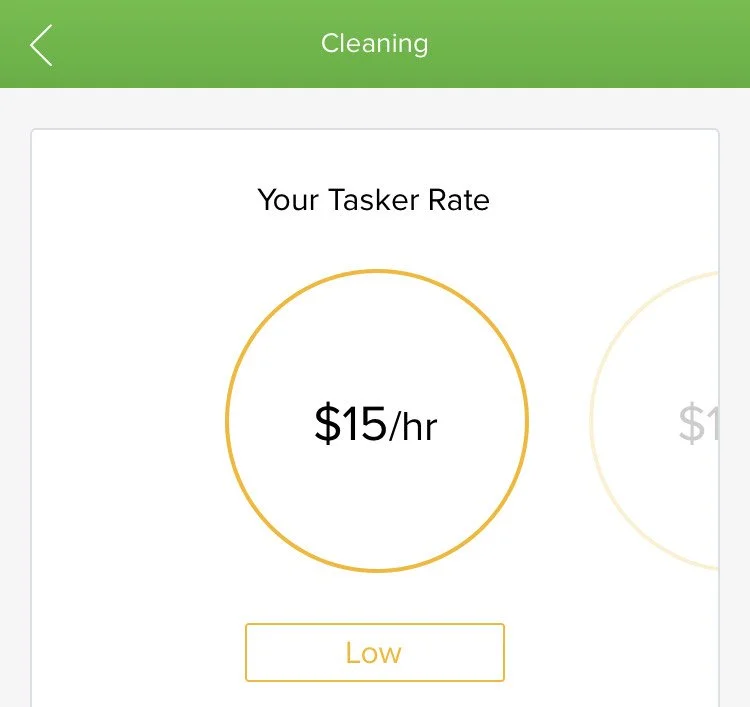“Three committee members voted to throw away the rights of thousands of workers”:
An Open Letter from Seattle TaskRabbit Workers to Seattle City Council
🖊️ TaskRabbit workers: Scroll down or click here to add your name. 🖊️
📢 SHARE: TWITTER - FACEBOOK 📢
Dear Seattle City Councilmembers:
On Tuesday, May 24th, a 3-2 vote in the Public Safety and Human Services Committee tacked on a last-minute amendment to the PayUp policy to exclude workers on TaskRabbit, Rover, Wag, and other so-called “marketplace” apps. And just like that, three committee members threw away the rights of thousands of workers, excluding us from a law that will finally bring a pay floor, flexibility, and transparency protections to Seattle’s gig economy.
As TaskRabbit workers, we’ve been fighting for PayUp from the beginning of the campaign three years ago. We helped build the policy and gave input throughout the year-long stakeholder process shaping the law’s language around our specific experiences on our app — as did corporate TaskRabbit lobbyists. We showed up to committee hearings on the bill and testified about why apps like ours must be included. Because on TaskRabbit, we’re facing the same issues as all gig workers: low pay, lack of real control over our work, and limited transparency.
TaskRabbit and Rover lobbyists claim that marketplace apps are “different” from those other gig companies. That their workers are happy, and can set whatever rates they want. That they don’t need a law to protect them.
We beg to differ.
Sure, we’re free to set our own rates…as long as we follow TaskRabbit’s “pricing guidelines.” Every time we set rates for one of the services offered on TaskRabbit, the app presents us with a sliding scale and a “suggested” rate for that service. For example, TaskRabbit “suggests” paying workers $20/hour for senior care, and $21/hour for delivery. (They tell delivery workers the cost of mileage “should be included in your hourly rate” — as are the other significant costs we cover as contractors — bringing take-home pay after expenses well below minimum wage.)
A very strong “suggestion”: TaskRabbit gives us an alert if our rates fall outside the narrow “suggested” range they want us to set. Try to set your delivery rate to $24/hour, and you’ll see the warning: “High. You’re more likely to get hired at a Tasker rate of $21/hour.”
In fact, you might say these rates are less of a suggestion than a threat.
In early April, TaskRabbit emailed workers telling us they’d “heard our feedback about wanting more clarity on how to ensure you appear in search results.” Their clarification:
“Your position in client search results is now based on your past performance and how closely you follow pricing guidance.”
In other words: if you set your rates too high, you won’t show up to customers, and you won’t get work. Lower your rates to match TaskRabbit’s “suggestion,” and they’ll start sending some job offers your way.
Telling workers what to charge sure doesn’t sound like a “marketplace” — especially not when those rates come out to subminimum wages. And it certainly isn’t a free or fair marketplace. A company cannot call us independent if they tell us how to price our services and control our access to work based on how little we charge. Instead of letting us decide what our time is worth, TaskRabbit forces us into compliance with metrics and search algorithms to drive down rates. They encourage new workers to undercut the going rate to get more clients. They’ve ramped up control in other ways too: they recently removed our ability to set our own cancellation policies. And they now charge customers a fee of over 35% of our pay.
Although TaskRabbit sets a floor on rates — $15/hour — it’s about $2.30 less than Seattle’s minimum wage, even before accounting for all the extra time and costs we cover as contractors.
To comply with PayUp’s compensation law for gig workers, all TaskRabbit would need to do is raise their rate floor to minimum wage.
But they don’t want to do that. Why would they, when they can simply write themselves out of the law instead? Thanks to some crafty fine print their lobbyists wrote into the definition for marketplace apps, TaskRabbit can offer tracked, on-demand deliveries with no worker control over rates, just like DoorDash & Instacart… but won’t have to follow any of the new standards that apply to DoorDash & Instacart, just because TaskRabbit “primarily” offers a different type of job.
Once PayUp passes, a 25-minute, 5-mile job on DoorDash will be legally required to pay at least $12.70. The same job at TaskRabbit’s suggested delivery rate pays just $8.75. And if they want, they can set that “suggestion” even lower. TaskRabbit jobs being held to a lower standard than jobs on other apps is a bizarre consequence of the fact that their lobbyist was clever enough to convince councilmembers our rates are so high we don’t need standards.
If TaskRabbit pays so well, why is the company so alarmed by a law that would simply require them to meet the minimum wage? And why have they worked so hard to worm their way out of it?
TaskRabbit exploits their workers just like every other gig company.
Some of us once thought we didn’t need a law like PayUp for TaskRabbit — we felt we were operating freely and earning enough that our app didn’t need that kind of oversight. But just like every other gig company, they’re in it for the money, and if there’s any way to exploit workers, they’ll find it. As a result of their meddling in the marketplace, rates on TaskRabbit have steadily dropped — just like rates on DoorDash, Uber, Instacart, Grubhub, Gopuff, and every other major gig app over the last few years. And like those companies, which are all valued in the billions, as we’ve made less corporate revenues have gone up. Since they were acquired by IKEA, an $18 billion corporation, TaskRabbit has lowered our rates and quietly increased the “Trust & Support Fee” they charge customers to over 35% of our rates.
We aren’t aware of any app that’s so good to workers they don’t need PayUp. But even if an app happens to be paying well right now, they still need to be held accountable to the law to ensure they will continue to treat us with basic decency. Excluding any apps from PayUp just means leaving the door open for more exploitation. The entire history of the gig economy is built on finding loopholes in labor law classification tests. You don’t have to be an attorney to realize that exempting companies classified as “marketplace” apps will lead to the same result.
City Councilmembers clearly agree that gig workers in Seattle should not be paid subminimum wages just because companies call them contractors.
By the same token, we shouldn’t get subminimum wages just because our companies call themselves “marketplace” companies.
The last-minute decision by Councilmembers Lewis, Pedersen, and Nelson to listen to TaskRabbit lobbyists over the voices of workers was disappointing and irresponsible. This hasty concession to multi-billion-dollar corporations allows gig companies to continue paying subminimum wages to workers just because they meet a definition their lobbyists wrote for themselves — and it opens up a loophole that other apps can and will use to evade any responsibility to their workers.
Don’t let the “marketplace” loophole stand.
Fix PayUp before the vote.


